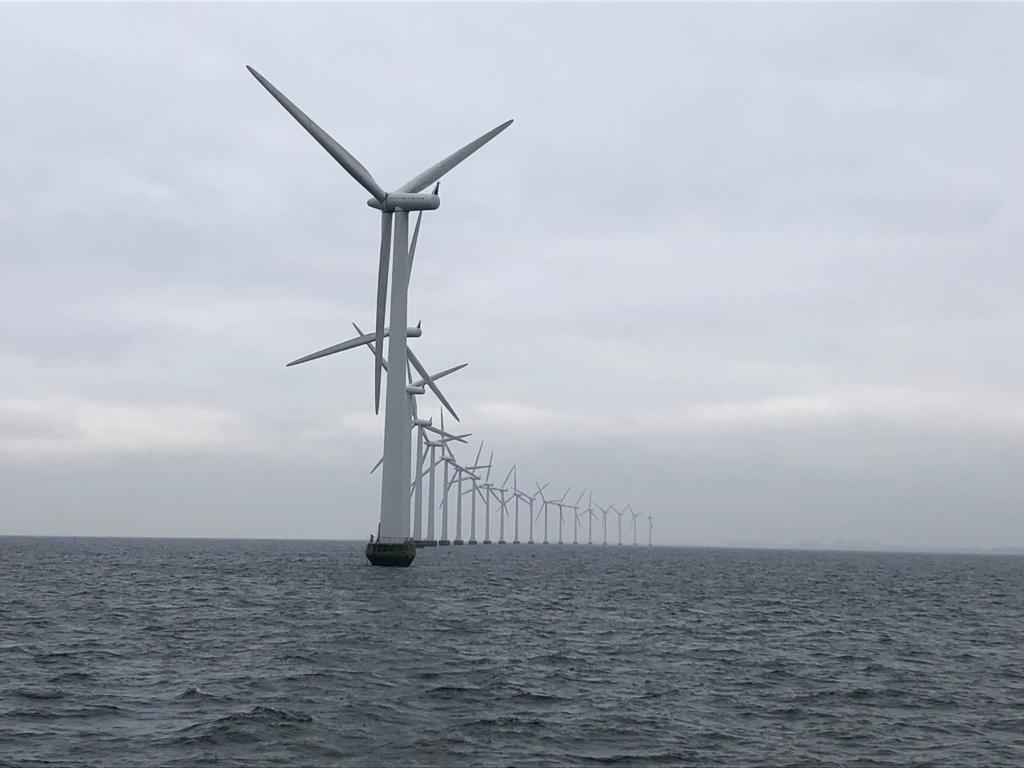„Diversification first, liberalization second,” is an old principle from the gas sector, which is now finding its way into the power sector, due to the big game surrounding the Baltic rail, which will connect offshore wind farms in the Baltic, but for now, without Poland’s involvement. Warsaw’s objections and plans to integrate the offshore farms with nuclear power may stand in the way – writes Wojciech Jakóbik, editor in chief at BiznesAlert.pl.
The Baltic rail without Poland for now
We wrote on BiznesAlert.pl about the memorandum of the Baltic Sea power grid operators on the joint development of offshore wind farms with emphasis on transmission networks. The document mostly pertains to drafting a joint plan to construct a grid that will make it possible to deliver the power generated offshore to the land around the Baltic Sea. In theory this endeavor is beneficial and seems to strengthen the energy cooperation in the region. It is accompanied by the declaration of Denmark, Germany and Holland on the construction of energy islands, e.g. on Bornholm. However, Poland’s power grid operator Polskie Sieci Elektroenergetyczne (PSE) has reservations. BiznesAlert.pl asked PSE about this. According to the company, the initiative to cooperate on expanding offshore wind energy and developing a grid in the Baltic is premature when it comes to PSE. This is because the operator’s actual plans to develop offshore wind energy in the Baltic are at a stage, which does not allow to plan for creating an offshore grid.
One could suspect that Poles would like to start with connecting their own offshore farms, so as not to increase energy imports from foreign wind farms, even if Denmark’s Orsted would be the provider, a company that is important from the point of view of cooperation with Denmark with regard to the Baltic Pipe. Surely, it is no coincidence that PGNiG bought from Orsted gas that is extracted in the Danish area of the North Sea. The PGE Group wants to cooperate with this company, when it comes to two offshore wind farms in the Baltic. Perhaps this wide energy cooperation, that goes far beyond the Baltic Pipe, will assuage the Dutch about the fact that at this point Poles do not want to participate in the construction of the the so-called Baltic rail. Instead, they want to first connect with the land grid the offshore wind farms built with the participation of Polish companies. Those farms are to receive first contracts for difference during auctions that will start in 2025. Only once that has been completed, will they allow foreign competitors to enter their market and trade power across borders. Otherwise, they would open their market to imported energy earlier, and Poland’s offshore would have to compete against foreign players with a delay of at least a few years. If that happened, Poland’s market would develop in a way that would make the country dependant on energy imports from Germany and other states with access to the Baltic Sea.
Diversification first, liberalization second?
The Baltic rail was promoted by Polskie Siecie Morskie (Polish Maritime Networks, PMN) already in 2012, and presented as an idea where offshore power grids would be connected to integrate markets and lower offshore costs in Poland and its neighbors. The initiative was supposed to have received EU support. „According to the concept of Polskie Sieci Morskie, the grid would start in the existing connection point to the national grid in Żarnowiec, go through the wind farms and then reenter the shore in the connection point in Dunowo. An additional cable would enter the shore in the town of Słupsk. The rail should also connect to other systems, including the planned grid that will link Germany’s offshore farms and the Swedish grid, together with the planned underwater cable NordBalt Sweden-Lithuania,” the Polish Press Agency informed.
However, it may turn out that issues related to the security of national supply may be more important, which is visible in the PSE position on this issue. This approach is analogous to the one Poland is taking about the liberalization of the domestic gas market. The principle that is applied, especially by Piotr Naimski the Government Plenipotentiary for Strategic Energy Infrastructure, says that first there needs to be an infrastructure that offers supply security. Only then can the gas market be liberalized. That is how the market will not be dominated by foreign companies. It is worth stressing that a similar scepticism about the Baltic Rail was visible in PSE Operator’s statements already in 2012. „The investors will have to build a cable that will connect the wind farm with a power substation for which grid connection requirements were issued. Of course, the construction of an international offshore grid is a separate issue, which is the subject of an analysis co-sponsored by the European Commission. However, these projects are more pertinent to the 2030 perspective than to today,” Henryk Majchrzak, the then CEO of PSE Operator, said postponing the discussion about the rail. So, this is another example of the consistency of Poland’s energy policy, which is similar to the push for diversification before liberalization of the gas market.
It’s gonna get busy
It seems that this principle will continue to guide Poland on how to approach the Baltic rail, and we should expect that a tense discussion on this topic to erupt, just like in the case of the debate on the liberalization of the gas market. If we combine this with the plans for offshore integration with nuclear power thanks to power connections, we get a formula which shows Poland’s distinct, but perhaps justified, approach in the region. The draft regulation on maritime spatial planning does take into consideration nuclear energy with regard to the rail by „ensuring there exists the possibility of connecting the wind farms to the national grid and the possible Baltic rail; and taking into consideration the construction of a nuclear power plant on the coast.”









